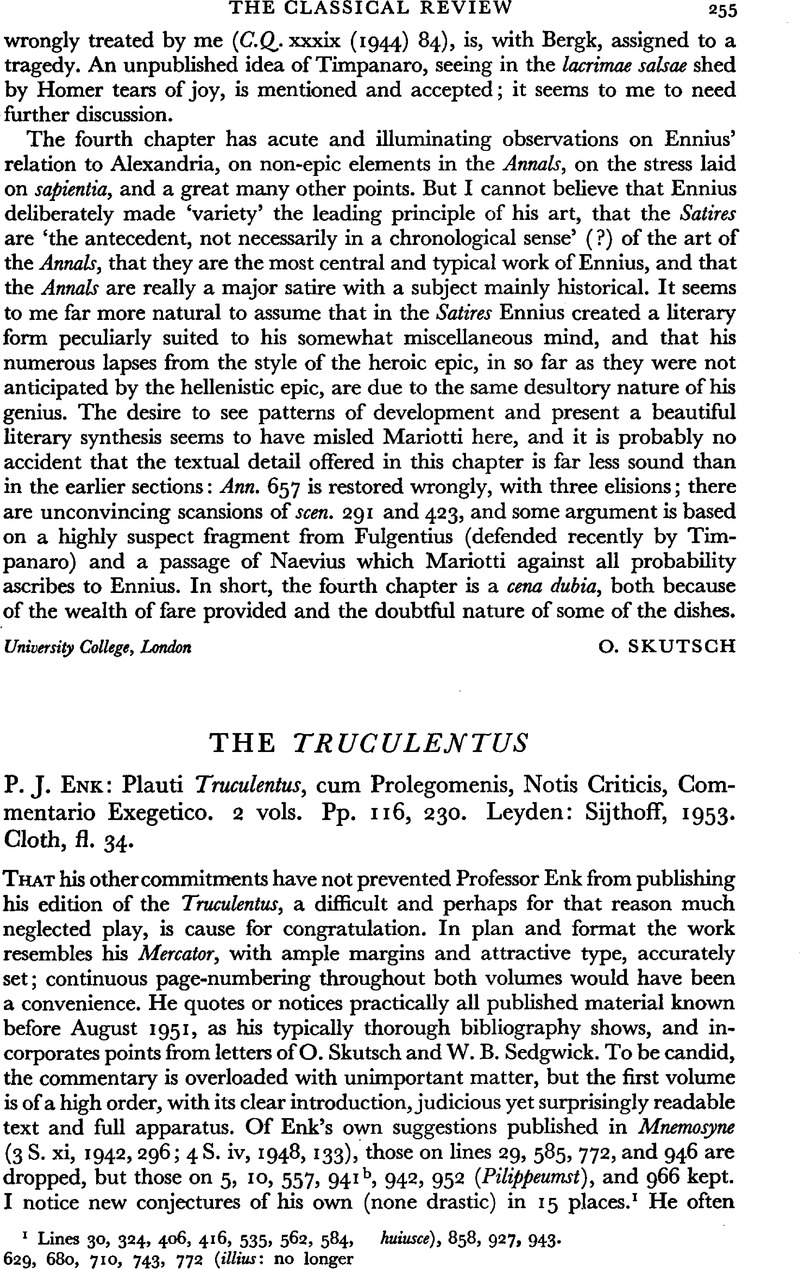No CrossRef data available.
Published online by Cambridge University Press: 13 February 2009

page 255 note 1 Lines 30, 324, 406, 416, 535, 562, 584, 629, 680, 710, 743, 772 (illius: no longer huiusce), 858, 927, 943.
page 256 note 1 See especially lines 29, 37, 48, 54, 56, 83, 192, 501, 508, 540, 569, 676, 737, 806.
page 256 note 2 See now Webster, T. B. L., Studies in Later Greek Comedy (Manchester, 1953), p. 148Google Scholar. This and the same author's Studies in Menander (Manchester, 1950) came out too late for Enk's use; the bibliography has omitted Webster's preliminary articles in Rylands Bulletin 1948, though an extract from one is quoted (i. p. 12).
page 256 note 3 So Buck, C. H., A Chronology of the Plays of Plautus (Baltimore, 1940), pp. 85 f,. 102 f.Google Scholar The t.p.q. for Most, is probably 193 B.C.; if p. unguenta exotica (line 42) can be pressed, it may have been staged in 189 or 188.
page 256 note 4 It should be added that the spelling Poeniceum is demanded by the pun with puniceo in Pseud. 229. See Postgate, J. P., Flaws in Classical Research, p. 40 (= Proc. Brit. Acad. iii, 1908, p. 200).Google Scholar
page 257 note 1 Thus the hiatus in Most. 259 may be explicable on dramatic grounds; Scapha coquettishly withholds the cerussa she has been asked for.